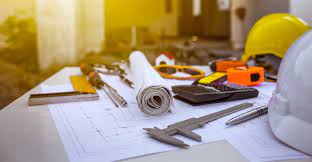In the fast-paced world of real property, property improvement ai has evolved from a manual, labor-intensive process that is now dependent on artificial intelligence (AI). This shift in technology is changing the way property owners, investors, and developers approach renovations and upgrades. Here’s an overview of how AI is making waves in the property improvement ai and what you need to know.
1. AI-Powered Design and Planning
AI is revolutionizing the design of property and planning, by providing advanced tools for creating and visualizing renovation plans. AI algorithms are able to analyze architectural plans and historical data to suggest optimal design improvements. Tools such as the virtual reality (VR) and enhanced reality (AR), powered by AI, let users test potential changes in real-time prior to committing to them. This not only enhances decision-making but also assists in avoiding costly errors.
2. Smart Renovation Recommendations
AI-driven platforms can assess a property’s current condition and suggest specific improvements. Through the use of data from prior renovations, market trends, and preferences of users, these platforms can provide insight into which improvements will yield the highest return on investment. For example, an AI system could recommend updating a kitchen or bathroom to increase property value, in light of similar sales and current market demands.
3. Predictive Maintenance
Maintaining your property requires the ability to anticipate and address problems before they become serious issues. AI plays an essential function in predictive maintenance by studying patterns and identifying possible issues. For example, AI systems can monitor HVAC systems, plumbing, and electrical infrastructures to detect problems and suggest preventive measures. This proactive approach aids in reducing repair costs and extends the life span of building components.
4. Cost Estimation and Budget Management
AI tools are able to streamline cost estimation by analyzing historical data, material prices and labor costs. This helps developers and owners of properties to create more accurate budgets and prevent unexpected costs. AI can also optimize the procurement process by providing cost-effective suppliers and products according to current market conditions.
5. Enhanced Project Management
The management of property improvement projects requires coordinating multiple tasks and stakeholders. AI improves project management by automating scheduling as well as tracking progress and managing resources. AI systems are also able to analyze project data to identify possible delays or problems, allowing for timely interventions and changes.
6. Personalization and Customer Experience
AI allows for a more personalized experience by analyzing user preferences and behaviour. For instance, AI-driven design platforms can provide suggestions for home improvements that are tailored to your personal tastes and requirements. This customization enhances satisfaction and guarantees that renovations will meet the specific desires of home owners.
Conclusion
AI is fundamentally changing the property improvement landscape by creating processes that are more effective, efficient and user-friendly. From design and planning to maintenance and project management, AI tools are helping property owners and developers make informed choices and attain more efficient results. As technology continues to advance and improve, the use of AI in improving property will only grow more important, offering new possibilities and innovations in the real estate market.

